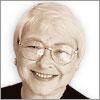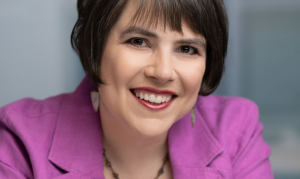Okay. So everybody knows the end of the last story. The Cuban Missile Crisis ended with the U.S. winning the standoff with Russia and the boys all came home in December. They had been at Ft. Stewart, Ga., with huge ships that carried large military cargo — like tanks and stuff — standing by, ready to head for Cuba if needed. Whew! Close call, folks.
Needless to say, I was happy to see my guy and to resume our somewhat normal life. He was tired but full of tales of his adventure.
We eventually left our apartment, got a house on post, Butch was promoted to first lieutenant and we got a dog (a German Shepherd we named Heidi) and had a baby (a daughter we named Judith Davida — Dee for short), in that order. I continued to teach as long as I could still waddle down the hall and Mom flew out to help with baby duties after Dee’s birth. Life was good.
But we had learned from our friends not to get too settled for too long. In June, shortly after Dee was born, we received orders for Germany. Again, I was excited at the thought of a new adventure — this time in a foreign country. Wow!
Moving was not easy. We had to separate our belongings into things that would go with us to Germany (pots and pans, china, linens, etc.) and things that would go into storage for the next three years (furniture). Also, Butch had to attend a six-week course at Fort Lee, Va., before we could set sail, so Heidi, Dee and I headed for East Point to stay with my parents for six weeks. Even though it was hard on all of us, I think it was a good time for my parents (and Butch’s parents) to get to know their granddaughter since they would not see her for three years.
In October, we drove from Atlanta to New York and boarded the U.S.N.S. Darby for a leisurely cruise to Bremerhaven, Germany (at that time it was West Germany). There were kennels for Heidi on the top deck and we had a nice outer stateroom with bunk beds, a crib, a porthole and a window seat. It wasn’t exactly a Princess Cruise, but that was the military.
I won’t go into details but it was relatively pleasant trip and we acted like typical tourists, gaping at every ship we passed. Butch got all excited when we were going through the English Channel and passed a genuine Russian freighter, complete with hammer and sickle on its smokestack.
In Bremerhaven we boarded a train for the ride to Stuttgart — a train that was straight out of an Agatha Christie movie, I kid you not. It was an old black locomotive with Pullman type cars stretched out behind it. We chugged along and came to the first little town.
“Where are we?” I asked, trying to feed Dee.
“Bahnhof, I think,” he answered, reading the sign outside the window.
We chugged along and made our second stop.
“Where are we now?” I asked again.
“Hmmm. Still in Bahnhof,” he answered.
That went on for four more stops before we realized something was not right. You can laugh now. Bahnhof means train station in German.
We arrived in Stuttgart the next morning and were met by our sponsoring officer who took us to our quarters in Ludwigsburg — our home for the next three years — a two bedroom, furnished apartment on the second floor of a three-story, 18-apartment building in “Pattonville.” Granted, the furniture was WW II era, but it was furniture nevertheless.
As was the custom, our sponsors had stocked the apartment with food and everything we needed until our stuff arrived. There was even a crib for Dee. It was quite roomy and comfortable and we had great neighbors. The next morning, Butch went to the train station to pick up Heidi. Our little family was now complete and we settled into our new home, still waiting for our personal belongings and our car to arrive.
Living in Germany was — different, so say the least. But it was challenging and exciting. Most people spoke a little English so getting around wasn’t too bad. The electricity was a challenge and we had to have “transformers” to convert our American appliances to German current.
The beer truck came like milk trucks over here. You put a beer sign in the window (ours was Dinkelacker — I still have it) and put your empties outside your front door (flip-top glass bottles) and the beer men would take your empties and leave you a full wooden container of beer.
There was no speed limit on the Autobahn, and if you were blocking the left lane by going too slow, you got the horn or the blinking lights. That took some getting used to but our little Fairlane could outrun most German cars. We did fairly well.
Butch liked his new job and settled in well. His new branch was Quartermaster and he was in charge of the bakery. We got fresh bread every week until his duties changed.
In 1966 he was promoted to captain, slightly early because he was made company commander of a company that had not passed an inspection in several months. He was given 30 days to pass the inspection — and he did it, but not before sending a lot of people home and rolling some heads along the way. I think it was the first time I ever saw him not liked. But it was his job and he did it.
I helped in a small way by washing the dayroom curtains. He was gone overnight a lot and I didn’t take it so well. I’m grateful he was tolerant of me. But he kept the company until it was time for us to go back to the states. Heidi went to work with Butch every day and became the company mascot. They made her a little jacket and she marched in all the parades. When we went on weekend trips, we left her in the barracks with the guys. She loved it.
I was hired, off and on, to teach school in the American school in Stuttgart, first kindergarten and then first grade. I say off and on because they hired military wives as “bumpers” who got hired and fired as the enrollment fluctuated. Dads who left for Vietnam kept us hopping and I was hired and fired three times.
My small salary gave us some breathing room and we were able to purchase a few pieces of furniture and do some traveling.
Mom flew over and we took about 10 days, touring Munich, Garmisch, Innsbruck, Liechtenstein, and Zurich, with a whole day at Neuschwanstein castle.
But there is no doubt that the highlight of our traveling was a 10-day trip to Italy. That’s for next time.
Judy Kilgore is the religion editor for The Citizen










Leave a Comment
You must be logged in to post a comment.